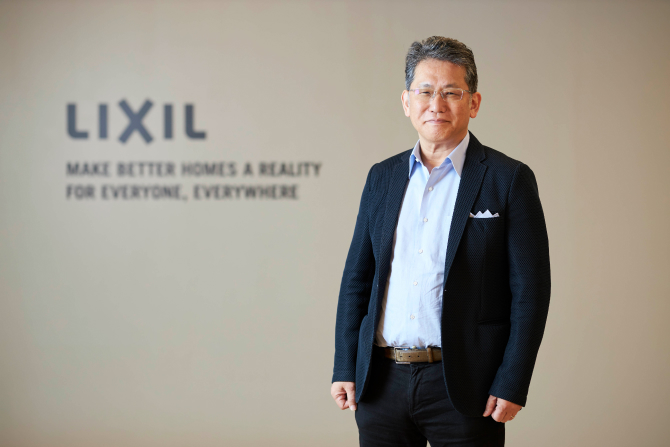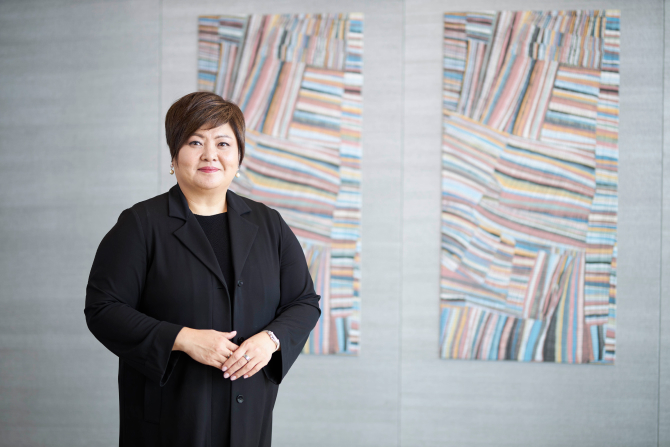LIXIL makes pioneering water and housing products that solve everyday, real-life challenges, making better homes a reality for everyone, everywhere.
- Global Site
-
- English
- Japanese
- Brand Sites
Global
- Global Site
-
- English
- Japanese
- Brand Sites
Message from the CEO

Kinya Seto
Director,
Representative Executive Officer,
President, and CEO
DRIVING SUSTAINABLE GROWTH AND CREATING IMPACT BY INTEGRATING ENVIRONMENTAL CONCERNS INTO BUSINESS STRATEGY
At LIXIL, we seek to fulfill our corporate purpose of making better homes a reality for everyone, everywhere, by achieving sustainable growth and creating a positive impact on society through our business activities. We are also delivering on a comprehensive Impact Strategy that contributes to the Sustainable Development Goals established by the United Nations and provides value beyond financial results to stakeholders, ensuring the long-term viability of our business. Our Impact Strategy includes three core pillars: Global Sanitation & Hygiene, Water Conservation & Environmental Sustainability, and Diversity & Inclusion. These areas represent the most pressing global issues where we can drive significant impact through our business, supporting value creation for stakeholders and laying the groundwork for our sustainable growth.
LIXIL aims to take a comprehensive and integrated approach to our Impact Strategy and Environmental, Social, and Governance (ESG) commitments. We aim to explicitly incorporate and drive these initiatives as an integral part of our business strategy. We have also added “Embed Robust Environment Strategy” as a strategic initiative in the LIXIL Playbook, and see the Impact Strategy as a part of the foundation of this strategy.
As the world faces an imminent need to reduce CO2 emissions, LIXIL has the unique ability to contribute to reducing carbon footprint and has set ambitious targets. The products we offer at LIXIL have high insulation properties, enable efficient water resource utilization, and contribute to improved hygiene and people’s health, thereby helping people everywhere to live more comfortably while reducing their burden on the planet. At the same time, we are improving energy efficiency and optimizing resource utilization across our business processes and the entire value chain. We are also actively promoting the circular use of resources and working toward establishing a business model that is both sustainable and competitive in order to maximize our impact on the environment and society.
To ensure that our LIXIL employees at the heart of these activities can achieve their full potential, we are focused on building an inclusive culture where diverse employees can thrive, promoting flexible work styles, and enhancing the employee experience.
LIXIL’s people are the driving force in realizing our corporate purpose. We are committed to working with our diverse stakeholders to create a positive impact on society and the environment.
Message from Impact Strategy Committee Chairperson

Jin Song Montesano
Director, Representative Executive Officer, Executive Vice President, Human Resources, Communications, External Affairs, and Impact Strategy, and Chief People Officer
Maximizing our Impact on Society and the Environment
LIXIL’s purpose is the starting point that guides everything we do to create positive impact for all of our stakeholders. Our ongoing work on ESG (Environment, Social, and Governance) initiatives has been highly evaluated and our initiatives have evolved beyond just meeting our responsibilities or obligations. As of April 2023, we have shifted our Corporate Responsibility (CR) Strategy to become LIXIL’s Impact Strategy. There are no changes to the three strategic pillars we set forth in 2016. However, our aim is to more accurately articulate our approach and continue to strengthen our commitments. This move will allow us to take a more holistic approach to making a positive environmental and social impact at the same time as also pursuing improved financial outcomes for LIXIL. It will also place a stronger emphasis on accountability and transparency, which we believe will further build trust with our stakeholders. I am pleased to report that we have made solid progress across the pillars during FYE2023, some of the highlights of which I will outline below.
Global Sanitation and Hygiene
Recently marking its tenth anniversary, our social business SATO, which contributes to Goal 6 of the United Nations’ Sustainable Development Goals (SDGs) – Ensure availability and sustainable management of water and sanitation for all – continues to expand sanitation markets by building strong supply chains from production to distribution. In FYE2023, we continued to focus on creating sustainable markets through collaboration with public and private organizations and joined with FINISH Mondial, a partnership that aims to increase access to safe sanitation through economic empowerment. Our “MAKE A SPLASH!” global partnership with UNICEF continues to build momentum across six focus countries (Ethiopia, Kenya, Tanzania, India, Indonesia and Nigeria). We also established our first dedicated public sector engagement platform, LIXIL Public Partners (LPP), and are working to tackle sanitation challenges in America. We are committed to delivering on our ambitious goal of improving the lives of 100 million people through safe sanitation and hygiene by 2025.
Water Conservation & Environmental Sustainability
We established our Environmental Vision 2050 and determined the three focus areas to achieve the vision: Climate Change Mitigation and Adaptation, Water Sustainability, and Circular Economy. In FYE2023, we updated our Environmental Strategy, setting new medium-term targets across our operations, value chain, and beyond, not only to fulfill our social responsibilities, but also to create new value, and maximize the impact of our business.
For Climate Change Mitigation and Adaptation, we are advancing our manufacturing technology to reduce production emissions and successfully verified the use of hydrogen combustion for aging treatment to fortify finished aluminum parts in 2022. We also installed solar power generation systems based on on-site power purchase agreements (PPA) inside and outside Japan, significantly increasing our renewable energy usage ratio to 25%.
To facilitate Water Sustainability, we are actively developing water technology products that reduce water usage, in addition to lowering use in our operations. One example is GROHE Everstream, designed to create the shower experience that people expect while consuming only a quarter of the water and a third of the energy by recycling water. This new technology is scheduled for launch in spring 2024.
We are also accelerating our efforts to contribute to realizing a Circular Economy through product innovation and launched revia, a new material that combines waste plastic with waste wood, which opens up opportunities to cut CO2 generated from conventional waste processing.
Diversity & Inclusion (D&I)
LIXIL is fostering an inclusive culture that embraces employee diversity to maximize the full impact of our diverse and capable workforce. We are on track to meet our 2030 D&I goal to embed a culture of inclusion across LIXIL and achieve key gender equity goals. Our Human Resources focus for FYE2023 was to deepen employees’ understanding and engagement of D&I, publishing the LIXIL Leaders’ Guide and building the D&I Dashboard to monitor progress. With these tools in place, we have shifted the accountability of driving D&I to each business and will review the progress at the D&I Committee.
We also launched a new product line, Art Brut Ecocarat, featuring artworks by neurodivergent artists contracted to Heralbony Co., Ltd. By paying license royalties out of the product sales revenue to the artists, we aim to contribute to creating an inclusive society in which everyone can play an active role.
LIXIL has a diverse workforce that is incredibly passionate about what we do. We will continue our drive to create positive impact, maximizing the internal energy of our inclusive culture.
